To help you to identify dangerous foods which you should avoid feeding to your African grey parrot, we’ve compiled this handy list of unsafe foods for parrots for you.
- The List Of Unsafe Foods For Parrots
- Alcohol
- Apple seeds
- Apricot pips
- Avocado
- Beans (uncooked)
- Caffeine
- Cherry pip
- Chinese onion
- Chive
- Chinese Scallion
- Chocolate
- Coffee
- Garlic
- Glittering chive
- Green onion
- Japanese scallion
- Jiangxi scallion
- Leek
- Mushroom
- Nectarine pip
- Onion
- Oriental onion
- Peach pip
- Pear seeds
- Plum pip
- Potato plant
- Rhubarb leaves
- Scallion
- Shallot
- Spring Onion
- Tea
- Tomato plant
- Xylitol
The List Of Unsafe Foods For Parrots
Alcohol
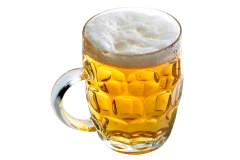
All alcoholic beverages are toxic for parrots. Never give a parrot alcohol any kind of alcohol.
Apple seeds
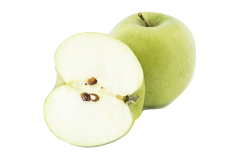
Apple seeds contain amygdalin, a chemical compound that releases toxic cyanide when it reacts with water.
Humans have to crack open and ingest quite large amounts of seed for this to have any negative effect on them. But, owing to their much smaller size, parrots and other birds are at risk with far smaller quantities.
You should core apples, or have their seeds removed, before feeding them to your parrot.
Apricot pips
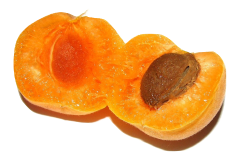
Apricot pips contain amygdalin, a compound that releases toxic cyanide when it reacts with water.
African grey parrots have strong beaks that are capable of breaking open these pips and eating their contents.
Avocado
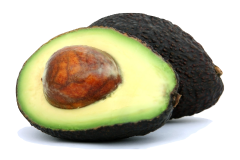
All parts of the avocado plant are poisonous. This includes the stems, bark, leaves and the flesh, skin and seed of the fruit.
The source of the poison is a fungicidal toxin called persin, which is present in the plant.
The lowest concentration of the persin is in the pulp of the fruit, but it is low enough to be harmless for humans.
On the other hand, birds seem to be very sensitive to the toxin. Breathing difficulty followed by death is a probable outcome for birds that have consumed avocado.
Captive birds seem to be more sensitive than wild birds.
Beans (uncooked)
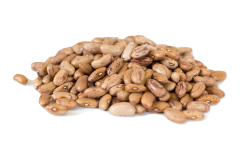
Uncooked beans contain lectins. These are compounds which occur in many plant foods that we consume.
Most lectins are harmless, but many raw beans contain one called phytohemagglutinin (PHA), which is toxic.
Phytohemagglutinin exists in many different kinds of beans, but it is most concentrated in red kidney beans.
Eating as few as 5 uncooked red kidney beans is enough to trigger toxicity in humans. This can lead to severe vomiting and diarrhea.
In a bird the size of a parrot, poisoning will occur after consuming much less than this.
Destroy the lectins by cooking the beans thoroughly at boiling temperature (100° C / 212° F) for at least 30 minutes.
Caffeine
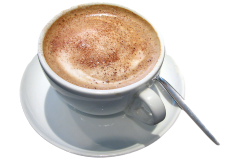
Caffeine is present in coffee, tea, soft drinks, energy drinks and chocolate, and is toxic to parrots.
Consuming any of these can result in hyperactivity, raised and irregular heartbeat, seizures and cardiac arrest.
Limit the fluids that your parrot gets to clean water and the occasional sip of fruit juice.
Cherry pip
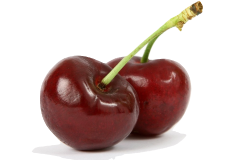
Cherry pips contain a compound that releases toxic cyanide when it reacts with water.
Parrots can use their beaks to crack the pips open and eat their contents. You should always remove the pips before feeding cherries to your parrot.
Chinese onion
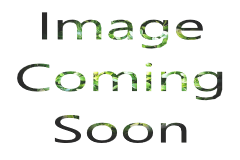
Other names: Chinese scallion, glittering chive, Japanese scallion, Jiangxi scallion, Oriental onion.
Just like the common onion, Chinese onion contains a toxin that causes anemia in birds and some other animals.
Chive

A member of the Allium group of plants which includes garlic and onion.
Like those plants, chives contain a toxin which breaks down red blood cells and causes anemia.
Chinese Scallion
See Chinese onion.
Chocolate
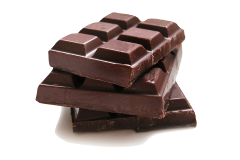
Chocolate is highly toxic and should never be given to your parrot.
It can contain not one, but two toxins: theobromine and caffeine, both of which are from a group of stimulants which are called methylxanthines.
It should not come as a surprise then, that the symptoms of toxicity in birds from caffeine and chocolate are practically identical. These include vomiting, diarrhea, tremors and even seizures and death.
All types of chocolate are poisonous.
Baking chocolate, dark chocolate and cocoa powder having the highest toxicity, while milk chocolate and white chocolate have the lowest.
Coffee
See Caffeine.
Garlic
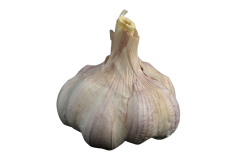
Garlic can cause anemia in animals and should not be given to your parrot to eat.
It belongs to the same class of plants as onions, chives and leeks.
Glittering chive
See Chinese onion.
Green onion
See scallion.
Japanese scallion
See Chinese onion.
Jiangxi scallion
See Chinese onion.
Leek
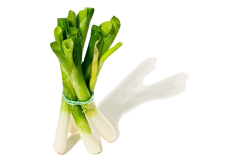
Leek is another member of the Allium group of onions and related plants, and poses the same risk as onion does to your pet parrot.
That means leeks can cause anemia as a result of damage to your bird’s red blood cells.
Mushroom
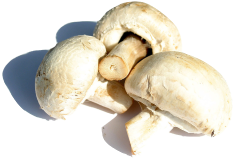
Mushrooms that are safe for humans are supposed to be safe for parrots too.
However, several sources say that mushrooms are know to cause digestive problems in birds. They also say that stems and caps of mushrooms can cause liver failure.
Practically all of these sources use either identical or similar wording suggesting that their information came from a common source.
Unfortunately, we don’t know what that source is, so we’re unable to verify the claims.
We have never fed mushrooms to our own parrot, and we do not plan to start now either. As usual, our advice is to err on the side of caution and to simply avoid feeding your parrot mushrooms altogether.
Nectarine pip
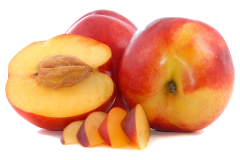
As part of the peach family of fruit, the pips of nectarines can also release cyanide when opened.
Onion
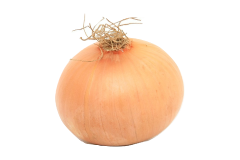
Onion, in any form, is toxic to birds. Whether the onion is raw, cooked or dried, the toxic ingredient remains present.
An African grey parrot of average weight can be poisoned by consuming as little as 2 to 3 grams of onion.
Onions contain compounds which damage the red blood cells of animals, leading to anemia.
Oriental onion
See Chinese onion.
Peach pip
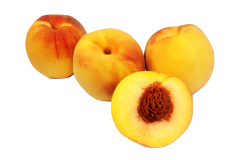
The pips of peaches can release cyanide when opened.
Although the flesh of the peach is safe, you should remove the pip before you let your parrot eat it.
African greys can crack the pips open with their powerful beaks.
Pear seeds
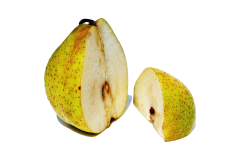
Pear seeds produce cyanide when the amygdalin inside the seeds reacts with water.
For this reason, pear seeds should be removed before feeding the fruit to your parrot.
Plum pip
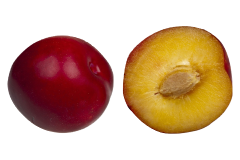
The pips of plums contain a substance called amygdalin, that reacts with water to produce the toxin cyanide when opened.
It’s not too difficult for a parrot the size of an African grey to open the pip. For that reason, always remove the pip before offering the fruit to your pet bird.
Potato plant
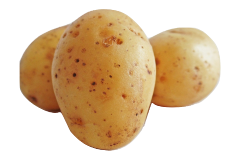
As a member of the nightshade family of plants, the potato plant contains toxic compounds called glycoalkaloids.
These are concentrated in the leaves, flowers, fruits and sprouts of the plant.
The lowest concentration is found in the tuber, the potato itself. The levels are safe enough for your parrot when the tuber is cooked.
Rhubarb leaves

Rhubarb leaves contain oxalic acid, which can lead to kidney failure when the leaves are eaten.
The stalks of the plant are a safe and common food source, however.
Scallion
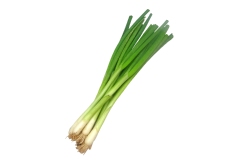
Other names: green onion, spring onion.
Ingesting scallion can cause anemia in parrots and other birds. Scallion belongs to the same Allium plant family as onion.
Shallot
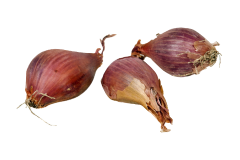
Shallots are very closely related to onions and, like onions, can cause anemia and death in birds.
Spring Onion
See scallion.
Tea
See Caffeine.
Tomato plant
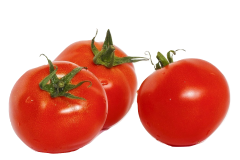
Tomato, when fed sparingly to a parrot, is safe, especially when cooked. It is very acidic and eating too much tomato can cause stomach ulcers in your bird.
Although tomato is edible to a degree, the rest of the plant, including leaves and stems, is toxic. These parts should be avoided altogether.
Also, be careful to remove all the green caps from the tomato when offering it to your pet.
Articles: Can Parrots Eat Tomatoes?
Xylitol

There is not much research into Xylitol’s effect on birds. But, it has been known to cause hypoglycemia (low blood sugar) and liver damage resulting in fatalities, in other animals.
Birds have a very high metabolism rate and are likely to be sensitive to the toxic effects of this artificial sweetener.
Considering the very small size of a bird like an African grey parrot, ingesting even a small amount could have a big impact.
It’s best to err on the side of caution and avoid giving your bird any food containing this substance.
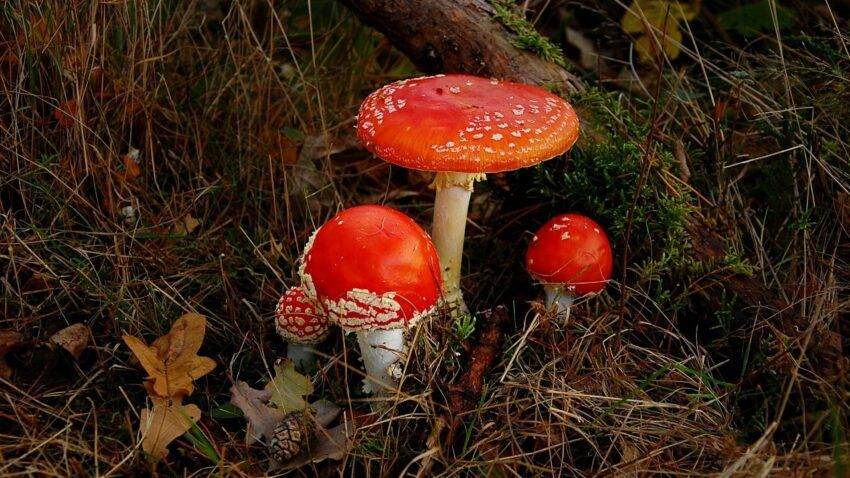
I’m used to those “Don’t feed the animals” signs when I visit zoos but I my thoughts around it was too simplistic like “they might choke” or something. This post enlightened me about an enormous problem that is to feed our pets with what WE think that’s good for them! Awesome post, precious information!
You’re absolutely correct Daniel. All too often we feed our animals foods on the assumption that, “If it’s OK for us, it’s OK for them”, but this is often not the case.
Thanks a lot for your feedback.
I read in another article where shelled peanuts are bad for African Greys because they contain aspergillus and aflatoxin. I even bought the shelled bag from Pet Smart. He seems to not care for the shelled peanuts, smart bird.
Are pistachios Ok?
We regard peanuts as safe for parrots to eat, but caution against buying low quality peanuts for exactly the concerns that you mention. That’s why I recommend buying only peanuts that are classified fit for human consumption as these should be free from mold. You can see the full entry for peanuts in our safe foods list here
Pistachios are OK for parrots too, although I advise you to be mindful of the high fat content in all nuts.
I hope this helps.
Great info
Thank you!!